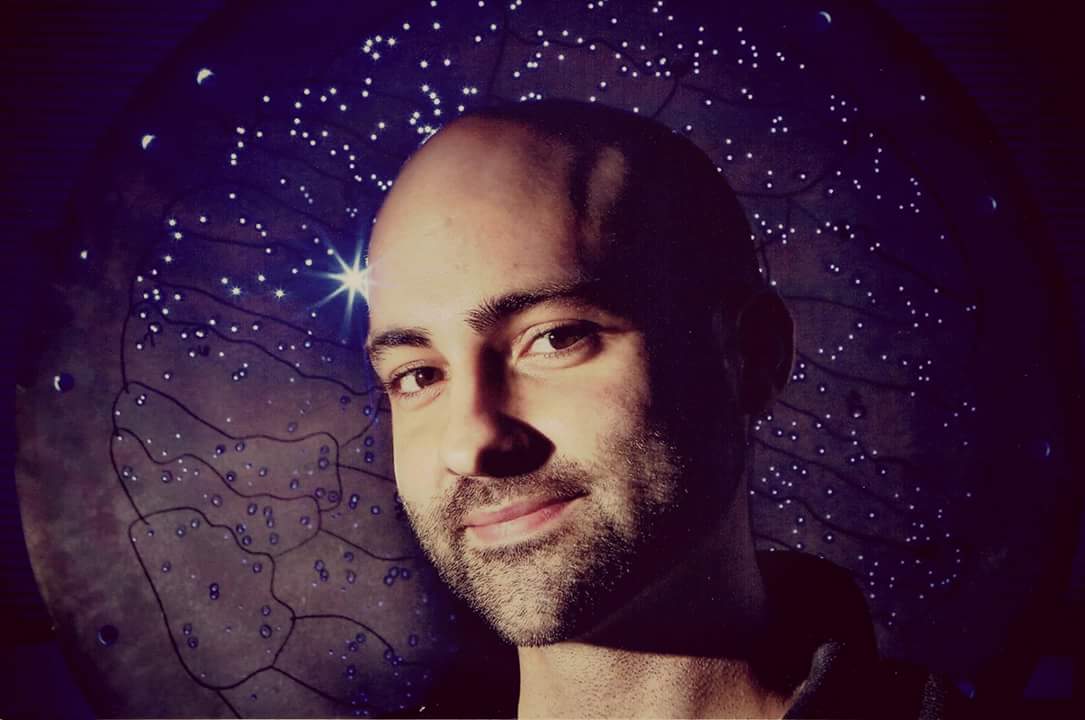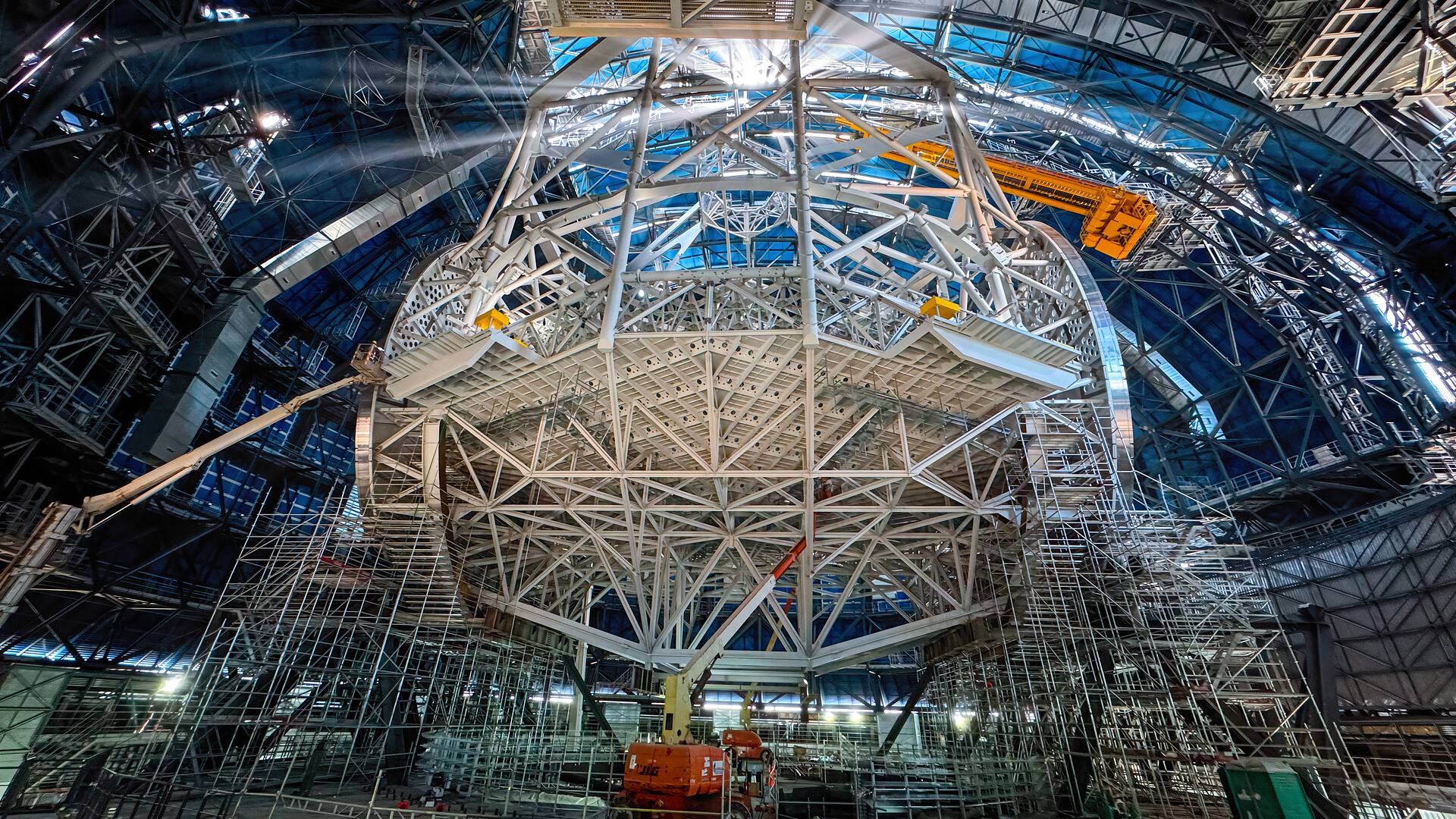Do we live in a rotating universe? If we did, we could travel back in time
Living in a rotating universe would be strange indeed.

Breaking space news, the latest updates on rocket launches, skywatching events and more!
You are now subscribed
Your newsletter sign-up was successful
Want to add more newsletters?

Delivered daily
Daily Newsletter
Breaking space news, the latest updates on rocket launches, skywatching events and more!

Once a month
Watch This Space
Sign up to our monthly entertainment newsletter to keep up with all our coverage of the latest sci-fi and space movies, tv shows, games and books.

Once a week
Night Sky This Week
Discover this week's must-see night sky events, moon phases, and stunning astrophotos. Sign up for our skywatching newsletter and explore the universe with us!

Twice a month
Strange New Words
Space.com's Sci-Fi Reader's Club. Read a sci-fi short story every month and join a virtual community of fellow science fiction fans!
We know that planets rotate, but what about the universe as a whole? No, the universe doesn't appear to rotate; if it did, time travel into the past might be possible.
Although people throughout antiquity had argued that the heavens rotate around the world, in 1949, mathematician Kurt Gödel was the first to provide a modern formulation of a rotating universe. He used the language of Albert Einstein's theory of general relativity to do so, as a way of honoring his friend and neighbor at Princeton, Einstein himself.
But this process of academic "honoring" went in a different direction than you might suspect, because Gödel used the example of a rotating universe to show that general relativity was incomplete.
Related: Was Einstein wrong? The case against space-time theory
Gödel's model of a rotating universe was rather artificial. Besides the rotation, his universe contained only one ingredient: a negative cosmological constant that resisted the centrifugal force of that rotation to keep the universe static.
But the artificial nature of that universe didn't bother Gödel. Instead, his main point was that general relativity allowed for the possibility of a rotating universe at all. And Gödel used his rotating universe to show that general relativity allowed for time travel into the past, which should be forbidden.
Taking the universe out for a spin
Living in a rotating universe would be strange indeed. For one, all observers would consider themselves the center of rotation. This means that if you parked yourself somewhere and ensured that you were absolutely still, you would see the universe wheeling around you. But if you picked up and moved anywhere else, even to a distant galaxy, you would always still see the universe rotating around your new position.
Breaking space news, the latest updates on rocket launches, skywatching events and more!
This is incredibly hard to visualize, but it's not much different from the idea that in an expanding universe, all observers see themselves as the center of expansion.
The farther you go from any one observer, the greater the rate of rotation. And this isn't merely a rotation of stuff but a rotation of space-time itself. This means that light, which is always forced to follow the curvature of space-time, makes for some strange journeys. A beam of light sent out from an observer will curve away as it gets swept up in the rotation of space-time. At some distant point, the rotation will be too much, and the light will turn around and return to the observer.
This means there's a limit to how far you can see in a rotating universe, and beyond that, all you'll observe is duplicate images of your own past self.
This strange behavior doesn't apply only to light. If you were to get in a rocket and blast off through a rotating universe, you, too, would get caught up in the rotation. And because of that rotation, your movement would double back on itself. When you returned to your starting point, however, you would find yourself arriving before you had left.
In a manner of speaking, a rotating universe would be capable of rotating your future into your own past, allowing you to travel back in time.
Sitting still
This was Gödel's major objection to general relativity. That theory, being our ultimate understanding of space and time, should not allow for backward time travel, because time travel into the past violates our notions of causality and introduces all sorts of nasty time-travel paradoxes. The fact that relativity did not automatically make time travel impossible signaled to Gödel that Einstein's theory was incomplete.
Thankfully, we see no signs that we live in a rotating universe. If the cosmos were rotating, then light coming from opposite directions of the sky would be redshifted in one direction and have an equivalent amount of blueshifting in the other. Astronomers have applied this test to surveys of distant galaxies and even to the cosmic microwave background, which is the light left over from when the cosmos was only 380,000 years old. The conclusion of these tests is that if the universe is rotating, it's doing so at a rate of less than 10^-17 degrees per century.
But Gödel's objection still stands. Since 1949, physicists have concocted other ways for general relativity to allow for backward time travel, wormholes, faster-than-light-speed "warp drive" (known as Alcubierre drive), and special paths around infinitely long cylinders. But all those contrivances rely on some sort of exotic physics that breaks our understanding of how the universe works, like matter with negative mass.
But Gödel's rotating universe is simply a matter of observational test, not a fundamental break with known physics. We could have found ourselves in a rotating universe just as easily as we find ourselves in an expanding one. There's nothing in our knowledge of physics that prevents this kind of universe from existing, so there's nothing in our knowledge of physics that prevents backward time travel.
Perhaps Gödel is right, and we have more to learn about the universe.
Learn more by listening to the "Ask A Spaceman" podcast, available on iTunes and askaspaceman.com. Ask your own question on Twitter using #AskASpaceman or by following Paul @PaulMattSutter and facebook.com/PaulMattSutter.
Follow us on Twitter @Spacedotcom or on Facebook.

Paul M. Sutter is a cosmologist at Johns Hopkins University, host of Ask a Spaceman, and author of How to Die in Space.
